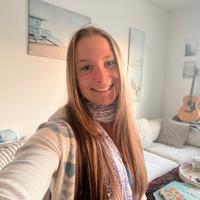Singing and the Brain: A Harmonious Connection
Thursday 3rd October 2024, 2:00 PM - 4:00 PM (London Time)
Friday 4th October 2024, 2:00 PM - 4:00 PM (London Time)
Unlock the transformative power of music with our two-part lecture series that delves deep into the fascinating intersection of neuroscience, music education, and music therapy. This comprehensive exploration will expand your horizons in the following key areas:
- Neuroscience and Music: Gain insights into the fundamental mechanisms underlying the profound connection between music and the brain. Uncover the intricate ways in which music impacts cognitive and emotional well-being, leading to remarkable changes in brain structure and function.
- Neuroscience of Music Education & Music Therapy: Discover how music education and therapy serve as catalysts for neuroplasticity, enhancing cognitive abilities and promoting lifelong brain health. Learn about the myriad benefits of these practices, from fostering healthy aging to their overall positive impact on well-being.
- The Science of Singing Throughout the Lifespan: Uncover the science behind the human voice and its evolution from infancy to later years. This segment provides a solid foundation of research on the art and science of singing, offering valuable insights for educators, practitioners, and researchers.
This course aims to achieve three distinct objectives: to demonstrate the multifaceted benefits of music training and therapy, to equip you with a neuroscience-informed perspective for teaching, practice, and research, and to provide a comprehensive understanding of the science of singing across all stages of life. Join Dr Patricia Izbicki on this captivating journey and unlock the secrets of music's impact on the brain and human development.
Dr Patricia Izbicki
Dr Patricia Izbicki is a neuroscientist and medical science liaison at Octave, as well as a classical pianist and harpsichordist. Her research focuses on understanding the brain mechanisms of complementary therapies, such as music training, in aging adults and persons with Parkinson's disease.

Attend this course for as little as £22 as part of the Voice Professional Training CPD Award Scheme.
Learn MoreSorry, this is an archived short course...
We have plenty of upcoming short courses coming soon. See details of some of them below or look at the full list of short courses.


Tuesday 3rd March 2026
5:00 PM - 7:00 PM
(London Time)
Sex differences in VOICE!

Dr Richard Lissemore
This two-hour workshop, led by performer, articulatory phoneticist, and voice physiologist, Dr. Richard Lissemore, will examine in detail the role that biological sex plays in the perception and pedagogy of singing voices. We'll consider how parameters such as anatomy, physiology, articulation, resonance, and radiated acoustics influence the perceptions and pedagogical decision-making of singing teachers.

Wednesday 4th March 2026
1:00 PM - 2:00 PM
Wednesday 11th March 2026
1:00 PM - 2:00 PM
Wednesday 18th March 2026
1:00 PM - 2:00 PM
Wednesday 25th March 2026
1:00 PM - 2:00 PM
Wednesday 1st April 2026
1:00 PM - 2:00 PM
Wednesday 8th April 2026
1:00 PM - 2:00 PM
(London Time)
Learn to Coach RP and SSBE – a Certificate in Accent Coaching

Louisa Morgan
This six-week course is an opportunity to learn about both Received Pronunciation and Standard Southern British English. Rather than a course in learning how to speak RP/SSBE (there are many brilliant available courses for this already), this course is about learning how to coach it.

Thursday 5th March 2026
1:00 PM - 2:30 PM
Thursday 12th March 2026
1:00 PM - 2:30 PM
(London Time)
Acting Emotion: Perspectives from the Masters

Louisa Morgan
Stanislavski said, “our artistic emotions are, at first, as shy as wild animals and they hide in the depths of our souls.” Michael Chekhov said, our bodies should be like a “sensitive membrane, a kind of receiver and conveyor of the subtlest images, feelings, emotions and will impulses.” And Meisner said we should be “living truthfully under imaginary circumstances.” Join Louisa Morgan in this 2-part course as she explores a range of well-known acting practitioners to investigate what they believed (or believe) about emotion and how they approached it in their work. She'll compare their work to see where they align and where they diverge.
